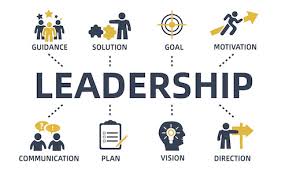Team collaboration is essential for any organization to achieve its goals and objectives. It is the foundation for success, and without it, teams can struggle to work together effectively. This is where team collaboration coaching comes in.
Team collaboration coaching is a process that helps teams work together more efficiently and effectively. A coach works with the team to identify areas where they can improve their collaboration skills, such as communication, trust-building, conflict resolution, and decision-making.
The coach will assess the team’s strengths and weaknesses and develop a customized plan to address any areas of concern. The coach will work with the team to implement the plan, providing guidance and support along the way.
One of the key benefits of team collaboration coaching is improved communication. Effective communication is critical for successful teamwork, and a coach can help teams develop better communication skills. This includes active listening, clear expression of ideas, and effective feedback.
Another benefit of team collaboration coaching is increased trust among team members. Trust is essential for effective teamwork because it creates an environment where people feel comfortable sharing their ideas and opinions without fear of judgment or rejection.
Conflict resolution is another area where team collaboration coaching can be beneficial. Conflict can arise in any group setting, but how it’s handled can make all the difference. A coach can help teams learn how to resolve conflicts in a constructive manner that promotes understanding and cooperation rather than division.
Finally, team collaboration coaching can help improve decision-making skills. When teams work together effectively, they are better equipped to make informed decisions that benefit everyone involved.
In conclusion, team collaboration coaching is an investment in your organization’s success. By improving communication, building trust, resolving conflicts constructively, and enhancing decision-making skills, teams are better equipped to achieve their goals together. If you’re looking to take your organization’s teamwork to the next level, consider investing in team collaboration coaching today!
7 Essential Tips for Effective Team Collaboration Coaching
- Set clear goals and objectives
- Foster an open, honest environment
- Promote active listening
- Encourage problem-solving strategies
- Focus on communication skills
- Provide positive reinforcement
- Monitor progress regularly
Set clear goals and objectives
Setting clear goals and objectives is an essential tip for effective team collaboration coaching. When teams have a clear understanding of what they are working towards, it helps to align their efforts and focus their energy.
Clear goals and objectives provide direction and purpose, which are critical for motivating team members to work together towards a common goal. Without clear goals, teams can become disorganized and lose sight of what they are trying to achieve.
When setting goals and objectives, it’s important to make them specific, measurable, achievable, relevant, and time-bound (SMART). This ensures that everyone on the team understands what is expected of them and how success will be measured.
Once the goals and objectives have been set, the coach can work with the team to develop a plan for achieving them. This plan should include specific tasks, deadlines, and responsibilities assigned to each team member.
Regular check-ins should be scheduled to assess progress towards the goals and address any issues or challenges that arise. This helps ensure that everyone stays on track and remains focused on achieving the desired outcome.
In conclusion, setting clear goals and objectives is critical for effective team collaboration coaching. It provides direction, motivation, and a sense of purpose that helps teams work together more effectively towards a common goal. By following the SMART framework when setting goals, coaches can help ensure that everyone on the team understands what is expected of them and how success will be measured.
Foster an open, honest environment
One of the most important tips for effective team collaboration coaching is to foster an open and honest environment. When team members feel comfortable sharing their thoughts and ideas, they are more likely to work together effectively and achieve their goals.
Creating an environment where team members feel safe to express themselves requires a few key elements. First, there must be trust among team members. This means that each person must feel confident that their opinions will be respected and valued by their colleagues.
Second, there must be clear communication channels in place. Team members should know how to communicate with one another effectively, whether it’s through regular meetings, email, or other channels.
Third, there must be a culture of openness and transparency within the team. This means that everyone should be encouraged to share their thoughts and ideas freely without fear of judgment or reprisal.
Finally, it’s important to create a supportive environment where team members can learn from one another. When people feel supported by their colleagues, they are more likely to take risks and try new things.
When these elements are in place, teams can work together more effectively and achieve their goals more efficiently. By fostering an open and honest environment through team collaboration coaching, organizations can build stronger teams that are better equipped to tackle any challenge that comes their way.
Promote active listening
One of the most important tips for effective team collaboration coaching is to promote active listening. Active listening is a critical component of good communication, and it can help teams work together more effectively.
Active listening involves paying attention to what the speaker is saying, without interrupting or judging them. It means focusing on the speaker’s words, tone of voice, and body language to gain a deeper understanding of their message.
Promoting active listening in team collaboration coaching can help teams achieve better communication by reducing misunderstandings and increasing trust. When team members feel heard and understood, they are more likely to share their ideas and opinions openly.
To promote active listening during team collaboration coaching sessions, coaches can encourage participants to:
- Be present: Encourage team members to be fully present during the conversation by putting aside distractions such as phones or laptops.
- Focus on the speaker: Ask team members to focus on the speaker’s message rather than thinking about what they want to say next.
- Ask questions: Encourage team members to ask questions for clarification instead of assuming they understand what the speaker is saying.
- Paraphrase: Ask team members to paraphrase what they heard in their own words to ensure they understand correctly.
- Validate feelings: Encourage team members to acknowledge the emotions behind the speaker’s message, even if they don’t agree with their perspective.
By promoting active listening during team collaboration coaching sessions, coaches can help teams improve their communication skills and work together more effectively towards achieving their goals.
Encourage problem-solving strategies
Encouraging problem-solving strategies is a crucial tip for effective team collaboration coaching. When teams are faced with challenges, it’s important that they have the skills and tools to work together to find solutions.
One way to encourage problem-solving strategies is to promote a culture of open communication. Team members should feel comfortable sharing their ideas and opinions without fear of judgment or criticism. By creating an environment where everyone’s input is valued, teams can work together more effectively to solve problems.
Another way to encourage problem-solving strategies is to provide training and resources. Teams may need guidance on how to approach complex problems or access to tools that can help them analyze data or brainstorm ideas. A coach can provide this support, helping teams develop the skills they need to tackle challenges head-on.
It’s also important for teams to take a collaborative approach when problem-solving. This means involving all team members in the process and encouraging everyone to contribute their unique perspectives and expertise. By working together, teams can leverage their collective knowledge and experience to find creative solutions that may not have been possible otherwise.
Finally, it’s essential for teams to evaluate their problem-solving strategies regularly. This means reflecting on what worked well and what could be improved in past situations and using this feedback to inform future approaches.
In conclusion, encouraging problem-solving strategies is a critical component of effective team collaboration coaching. By promoting open communication, providing training and resources, taking a collaborative approach, and evaluating strategies regularly, teams can work together more effectively to overcome challenges and achieve their goals.
Focus on communication skills
Effective communication is the cornerstone of successful teamwork. Without clear and open communication, even the most talented team members can struggle to work together effectively. This is why focusing on communication skills is a crucial tip for team collaboration coaching.
A coach can work with your team to identify areas where communication can be improved, such as active listening, clear expression of ideas, and effective feedback. They can provide guidance on how to communicate in a way that promotes understanding and collaboration.
One key aspect of effective communication is active listening. This means paying attention to what others are saying and asking clarifying questions when necessary. It also means being open-minded and willing to consider different perspectives.
Clear expression of ideas is another important aspect of effective communication. This means expressing your thoughts and ideas clearly and concisely, using language that others can understand. It also means being able to articulate your needs and expectations in a way that promotes cooperation.
Finally, effective feedback is critical for successful teamwork. Feedback should be constructive, specific, and focused on behavior rather than personality traits. It should also be given in a timely manner so that team members have an opportunity to make adjustments as needed.
In conclusion, focusing on communication skills is an essential component of team collaboration coaching. By improving active listening, clear expression of ideas, and effective feedback, teams can work together more effectively towards their common goals. If you’re looking to take your organization’s teamwork to the next level, consider investing in team collaboration coaching today!
Provide positive reinforcement
Positive reinforcement is a powerful tool in team collaboration coaching. It involves acknowledging and rewarding positive behavior and outcomes, which can help motivate team members to continue working together effectively.
When team members feel appreciated and valued, they are more likely to put in the effort to maintain positive working relationships. Positive reinforcement can take many forms, such as verbal praise, recognition in meetings or emails, or even small rewards like gift cards or extra time off.
One of the benefits of positive reinforcement is that it helps build a culture of positivity and collaboration within the team. When team members see that their efforts are recognized and appreciated, they are more likely to continue working together effectively.
Another benefit of positive reinforcement is that it can help address negative behaviors or outcomes. By focusing on positive actions and outcomes, coaches can encourage teams to shift their focus away from negative behaviors or outcomes. This creates a more constructive environment where team members are encouraged to work together towards success rather than being focused on past mistakes.
In conclusion, providing positive reinforcement is an essential aspect of effective team collaboration coaching. By acknowledging and rewarding positive behavior and outcomes, coaches can create a culture of positivity and collaboration within teams. This helps motivate team members to continue working together effectively while also addressing negative behaviors or outcomes constructively.
Monitor progress regularly
When it comes to team collaboration coaching, one important tip to keep in mind is to monitor progress regularly. While it’s important to develop a customized plan and implement it with the support of a coach, it’s equally critical to track progress along the way.
Regular monitoring allows teams to see how far they’ve come and identify any areas where they may need additional support. It also provides an opportunity for teams to celebrate their successes and acknowledge their hard work.
Monitoring progress can take many forms, including regular check-ins with the coach, team meetings, or progress reports. It’s important to establish a schedule that works for everyone involved and stick to it consistently.
In addition to tracking progress, regular monitoring also allows teams to adjust their approach as needed. If a particular strategy isn’t working as well as expected, the team can work with the coach to make adjustments and try something new.
By monitoring progress regularly, teams can stay on track and continue moving towards their goals. This helps ensure that everyone is working together effectively and that the team is making meaningful progress towards success.
In conclusion, if you’re investing in team collaboration coaching, don’t forget the importance of regular progress monitoring. By doing so, you’ll be able to celebrate successes along the way while also identifying areas where additional support may be needed. So keep track of your team’s progress and adjust your approach as needed – you’ll be well on your way towards achieving your goals together!



